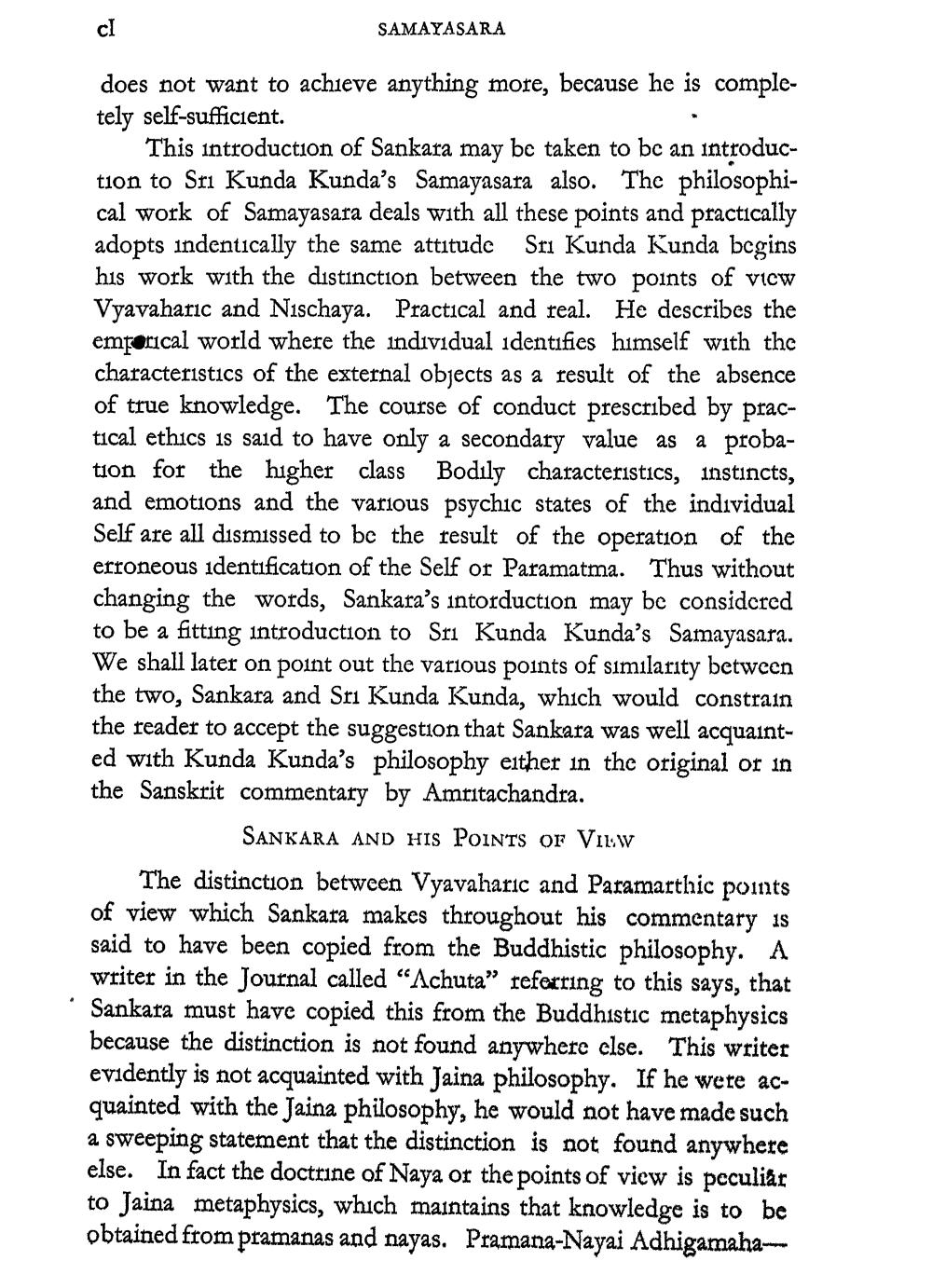________________
SAMAYASARA
does not want to achieve anything more, because he is completely self-sufficient.
This introduction of Sankara may be taken to be an introduction to Sri Kunda Kunda’s Samayasara also. The philosophical work of Samayasara deals with all these points and practically adopts indentically the same attitude Sri Kunda Kunda begins his work with the distinction between the two points of vicw Vyavaharic and Nischaya. Practical and real. He describes the emførical world where the individual identifies himself with the characteristics of the external objects as a result of the absence of true knowledge. The course of conduct prescribed by practical ethics is said to have only a secondary value as a probation for the higher class Bodily characteristics, instincts, and emotions and the various psychic states of the individual Self are all dismissed to be the result of the operation of the erroneous identification of the Self or Paramatma. Thus without changing the words, Sankara’s intorduction may be considered to be a fitting introduction to Sri Kunda Kunda’s Samayasara. We shall later on point out the various points of similarity between the two, Sankara and Sri Kunda Kunda, which would constrain the reader to accept the suggestion that Sankara was well acquainted with Kunda Kunda's philosophy either in the original or in the Sanskrit commentary by Amritachandra.
SANKARA AND HIS POINTS OF VIw The distinction between Vyavaharic and Paramarthic points of view which Sankara makes throughout his commentary is said to have been copied from the Buddhistic philosophy. A writer in the Journal called "Achuta" referring to this says, that Sankara must have copied this from the Buddhistic metaphysics because the distinction is not found anywhere else. This writer evidently is not acquainted with Jaina philosophy. If he were acquainted with the Jaina philosophy, he would not have made such a sweeping statement that the distinction is not found anywhere else. In fact the doctrine of Naya or the points of view is peculiar to Jaina metaphysics, which maintains that knowledge is to be obtained from pramanas and nayas. Pramana-Nayai Adhigamaha




